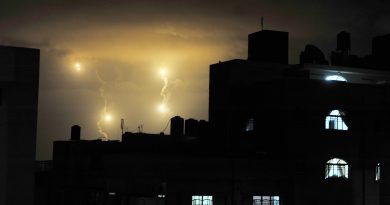What Does Pakistan’s Censorship Say About its Blasphemy Laws?
Eman Fatima
Staff Writer
Pakistan has a history of constant censorship. In February 2023, Pakistan decided to ban Wikipedia for blasphemous content, according to Al Jazeera. Pakistan has firm and strict regulations against blasphemy, requiring the death sentence in most cases. According to Article 19 of Pakistan’s constitution, “Pakistan guarantees freedom of speech and expression and freedom of the press with certain restrictions.” However, media and internet censorship restrict freedom of speech.
The word “blasphemy” does not have a universal definition. Each person might have their own interpretation of what could be called blasphemy. Islam is the nation’s state religion and the most widely practiced. Ninety percent of the citizens follow the Sunni faith, which leaves the minority religious and ethnic groups at a significant disadvantage. This can be seen in the implementation of Pakistan’s blasphemy laws, which state, “In 1927, under pressure from the Muslim community, the administration of the British Raj enacted Hate Speech Law Section 295(A), a part of the Criminal Law Amendment Act XXV.” This made it a criminal offense to insult the founders or leaders of any religious community. Now, does this mean a person cannot criticize or question authority? This made things a lot worse for Shia and Ahmadi Muslims.
Pakistan has an extreme, dark history of trying to erase the Ahmadi Muslim community. On April 26, 1984, then-dictator Zia-al-Haq introduced Ordinance XX, which imposed unprecedented restrictions on the religious expression and practices of the Ahmadi community. Ahmadi describe themselves as a revivalist movement within Islam. However, due to the sect’s unorthodox views on the finality of prophethood and the second coming of Hazrat Isa, or Prophet Jesus, it is viewed as heretical by most orthodox Muslims. Calls to impose legal restrictions on the Ahmadi community started after Pakistan’s independence. In 1953, the launch of the Khatme Nabuwat movement in Lahore demanded that Ahmadis be officially declared non-Muslims and removed from top government offices.
These lawmakers introduced and implemented these discriminatory laws during their terms to persecute Ahmadis, which continues to affect the group as officials continue to strictly follow these laws. The Ahmadi community cannot openly express their differences and concerns, because doing so puts them at risk of censorship or being killed for “blasphemy.” It is not new news that Pakistan’s treatment of minority and non-Muslim groups has not been the best throughout history.
This is not the first time Pakistan has censored an internet platform. YouTube was banned in 2008 after there was a depiction of the Prophet Muhammad on the site. Depictions of prophets are considered a form of blasphemy in many Muslim countries, including Pakistan. But is this only about blasphemy? YouTube has been a useful tool for people who come from low-income backgrounds, especially students, to learn, and it is a shame that none of this was considered while making that decision. Social media expert Mohsin Raza tells , “Pakistan’s media regulator and other authorities should try to find some viable technical solution to such problems as blasphemous content is available everywhere, it is equal to a drop in the ocean of knowledge.”
Pakistan’s blasphemy laws frequently lead to false accusations and it is no surprise how most of the people accused come from non-Muslim groups, Shia, and Ahmadi people. In 2019, according to the , four Christian women were falsely accused of blasphemy. The sad part is that these four women are not the only ones with stories like this. This has happened to many people and a lot of them are killed in the name of the religion. Dawn explains that in 2018, a bill was passed in Parliament to criminalize false blasphemy accusations on the directions of the Islamabad High Court. However, the bill was unfortunately blocked. So, there is no hope that the oppressed can speak for themselves; if someone does, they will likely deal with the consequences of blasphemy laws.
Image courtesy of the National assembly of Pakistan, Wikimedia Commons


